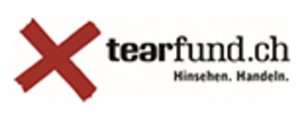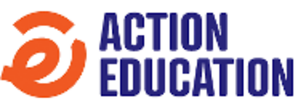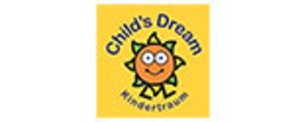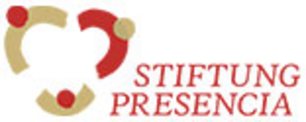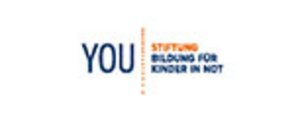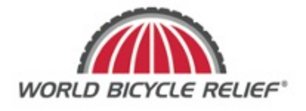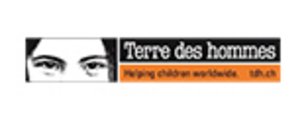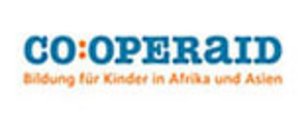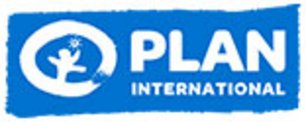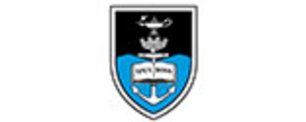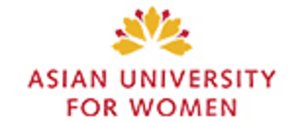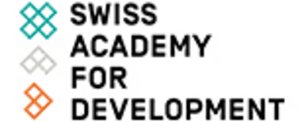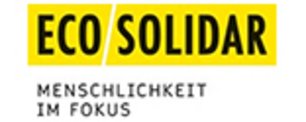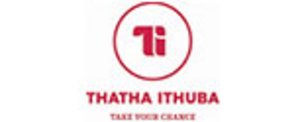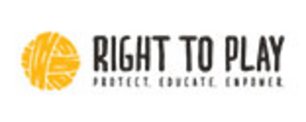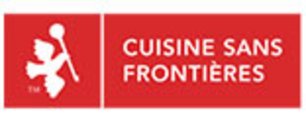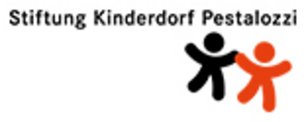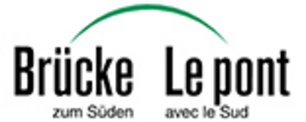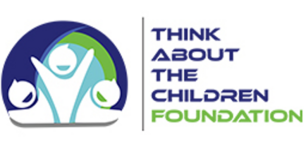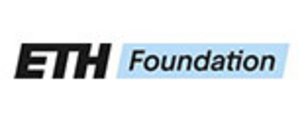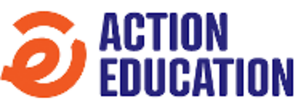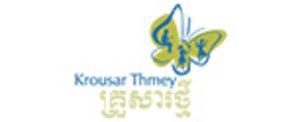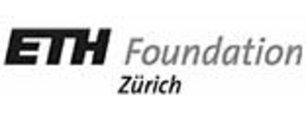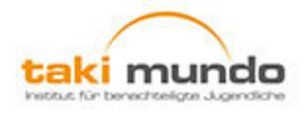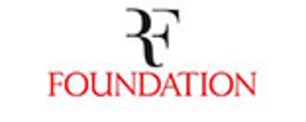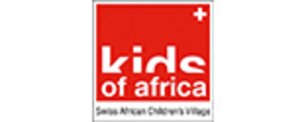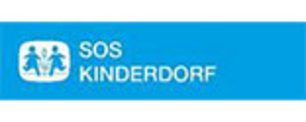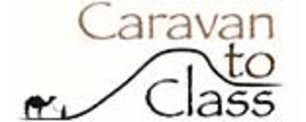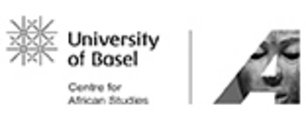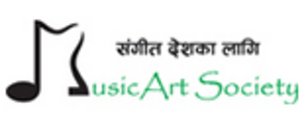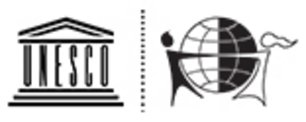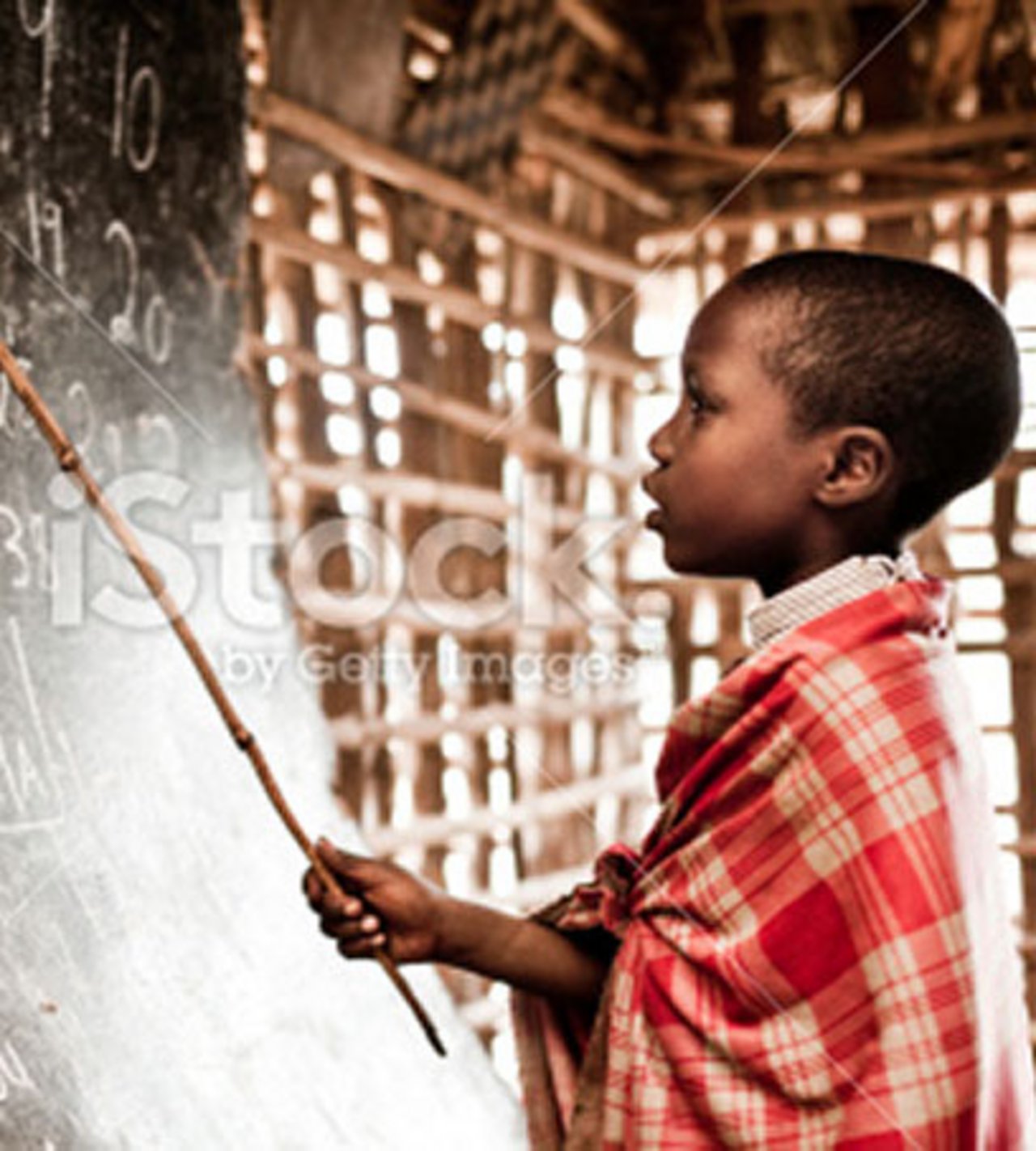
TearFund Schweiz, Zurich
The project region Huánuco is in the Peruvian Andes and covers nearly the size of Switzerland. It is one of the most economically challenged areas of Peru. For some 35,000 people with physical and/or mental challenges, the situation is particularly difficult. If they are unable to perform physical labor in agriculture, they have little chance to generate an income. They are typically viewed by their families and society as a burden and live in isolation. Despite existing legislation, in practice they receive little to no support from their government.
TearFund Switzerland partners with an experienced local organization (Renacer) to offer 144 people with challenges vocational training in textile handicrafts, metal construction, food services, and gardening. Project participants receive individualized support for their personal and professional development and are equipped to promote and sell their products successfully. As a result, trained individuals experience a growing sense of self-confidence and receive validation from others. Renacer also advocates with the authorities for the rights of people with various challenges and raises awareness among family members and the larger community to value and support them. Renacer has an excellent track record for their work and has already received two awards from the International Labor Organization of the UN.
Action Education, Geneva (former Aide et Action)
Action Education applies to facilitate basic learning for children in rural and isolated areas in Lao PDR. The project concentrates on the following three main axes:
1. setting up low-cost mobile libraries to serve young children in villages
2. facilitating the learning of children through the use of information and communication technologies
3. strengthening the teachers' skills with emphasizes on child-friendly training approach
The aim of the project is to improve the children's learning outcomes in the basic subjects of Lao language and mathematics as well as the use of information and communication technologies to facilitate the learning of these two subjects.
Child's Dream Association, Zurich
Already on our fourth project with Child’s Dream, it was agreed to replace one of the two current buildings, the rotten and unsafe facility constructed in 1994. Six new classrooms and four additional toilets will significantly enhance the learning experience and hygiene standards in the Fangdang Primary School in Southern Laos. After completion of this project, the village will be able to rely on 12 quality classrooms for the current student population of 214 boys and girls. It is expected that the student body will grow further in the years to come, since proper facilities underline the importance of education.
Stiftung Presencia, Basel
The Presencia Foundation is active in the poor district “San Antonio de Prado” in the south of Medellín, Colombia and, together with its team of local experts, is pursuing the vision of breaking the poverty spiral through education. This is implemented with four different projects that support and accompany the beneficiaries in all stages of education - from elementary school to the completion of vocational training or studies.
In the vocational training project, beneficiaries are provided with training at one of our partner institutions. In addition to theoretical education, the young people also have the opportunity to do an internship in a company to gain work experience. They are supported and individually accompanied by our team of social pedagogues throughout their process and until the successful integration in the job market. Thanks to the vocational training project the young people have the chance to learn a profession that is in demand and break the vicious circle of poverty and lack of education.
TearFund Schweiz, Zurich
For young people in Peru, the transition from public school to work is challenging, particularly for those living in rural areas. Anyone who would like to pursue further studies would have to move to the city, which is simply unaffordable for most. For the rest, the future offers few options. Vocational schools are scant, typically inadequate, and fail to provide a viable alternative. And without proper training and skills, young people can only hope to find menial or temporary jobs and become trapped in a life marked by poverty. This project seeks to bring about lasting change and give people hope. By improving the quality of public vocational schools, young people receive the opportunity to acquire the skills and qualifications they need. This in turn enables them to find jobs to earn a living or to launch their own small businesses. In this way, they are able to provide for themselves and their families and regain a sense of hope for their future.
Hatua Network Organization, Kenya
Hatua Network works to end generational poverty by preparing promising, low-income youth to thrive in Kenya's workforce. They do so by providing scholarships to top-performing students from low-income families to pursue their high school and university education. They then mentor their scholarship students for 10 years, focusing on soft skills critical for career success including communication, collaboration, problem-solving, emotional intelligence and responsibility. At the tertiary level, Hatua pairs each student with a professional working in their career field of interest to help students gain industry-specific career guidance and build their professional networks. Finally, Hatua partners with Kenyan employers help to address their need for top entry-level talent and connect alumni to career opportunities. Among Hatua alumni, 95% are engaged in the workforce within one year of graduating, and those who are earning have an average income that is 6 times the international poverty line and 3.5 times the average combined household income of Hatua students' families. This is a total transformation, from poverty to professional careers.
Sano Prakash, Urdorf
The organization “Sano Prakash” brings education and a home to underprivileged children in Nepal. The “Junkiri Planet School” teaches children of each social status and origin using holistic teaching and learning approaches. The children's home called “Sano Prakash Home” which is a part of the school makes sure neglected, underprivileged children and street children are gifted a loving home, education, love, warmth and security. Sano Prakash is Nepalese and means “small light”. It stands for the main idea of bringing a small light to children who have not had enough of it in their lives
YOU Stiftung – Bildung für Kinder in Not, Germany
The target beneficiary group of "Online to Success - Vocational Training+ " includes youth, operative workers, informal workers, and small entrepreneurs - a sector of more than 70 million people, representing 31.82% of the total population in Brazil. This project creates and promotes opportunities for vocational training and professional skills for the most vulnerable through online services and counseling in the favelas of Brazil. A qualitative online platform with free training for needy workers and entrepreneurs of the favelas can be further developed and made accessible with the project. After successfully completing the course and receiving a certificate, the course participants also have the opportunity to apply directly to the job market via the job portal of the project's media partner. For effective implementation, the project is based on many partnerships with companies and NGOs working in the comunidades/favelas. It is also based on a strong presence in social media, in a collaboration with Brazilian influencers and the so-called "Ed+ ambassadors" (particularly committed young people from the favelas).
Association ANAK – Aide aux Enfants d'Indonésie – Suisse, Geneva
Anak – Aid to Indonesian children, is a non-profit, apolitical, and non-denominational humanitarian organization founded in 2003 and has branches in France, Switzerland, Luxembourg and, Spain and an office in Bali. The association works to educate children from remote villages on the island of Bali, in areas where a lot of people live below the poverty threshold. In partnership with local communities, Anak helps and guides more than 200 children in their studies, from primary school to university, thanks to the financial support of more than 300 godparents, donors, partners and foundations. All these children live with their families and are able to attend public schools and continue their studies until graduation, thanks to the monthly payment of their school fees. Anak also guides these young people in their choice of career and follows up their studies in the remotest areas of Bali, where the lack of information and the lack of schooling among adults are true obstacles to education and autonomy. If these young people and future generations are supported to become independent and autonomous, they can break the vicious cycle of poverty. As a consequence, their futures can be brighter, and they can have a better chance to achieve their dreams.
Association Room to Read, Zurich
Laos’ education system is in need of improvement in order to meet the needs of its very young population – half of the people are below 18 years of age. Inequalities based on ethnicity, gender and wealth hinder many children from receiving equal access to education. This project aims to improve the reading skills of primary school children in Laos. It addresses three key areas being teacher training and support, reading materials and learning spaces.
World Bicycle Relief (Switzerland), Geneva
Sustainable mobility is an issue and amplifier of development impact often overlooked, particularly in rural areas. Worldwide, up to one billion people lack access to livelihood opportunities, markets, healthcare and education due to distance. To address the challenges of distance and lack of sustainable mobility, World Bicycle Relief manufactures and distributes a rugged, specially designed, locally assembled bicycle (Buffalo Bicycle) to students, health service providers, entrepreneurs and workers with their project “Bicycles for Education Empowerment Program (BEEP) in Western Kenya”. With a Buffalo Bicycle, World Bicycle Relief-led and partner-led rural mobility initiatives increase access to livelihoods opportunities, health services and education.
Terre des Hommes, Lausanne
The project "Replication of the existing CAS training program in Juvenile Justice – West Africa" has the aim to develop an internationally recognised certificate (CAS) on the juvenile criminal law as an e-learning course. The long-term goal is to support personnel working with youth crime so that they are better equipped and can acquire the necessary knowledge. Innovation and the digital transformation of their programmes are essential to adapt to an ever-changing world.
CO-OPERAID, Zurich
The project is active in the rural Teuk Phos district in Cambodia’s Kampong Chhnang province. It aims to enhance the education opportunities at public schools. The project supports two kindergartens, two primary schools and two secondary schools. Furthermore, it provides direct support to the families - they can start their own agricultural income projects which directly improve their livelihood. Other families receive support in the form of school fees for their children.
Plan International Schweiz, Zurich
The first project’s goal is to improve primary school participation rates and early grade learning outcomes in the province of Bokeo, Laos. With this project the quality of teaching and hence the children’s learning will be improved. Furthermore, the school management and community engagement in school governance will be strengthened.
The second project has the aim to foster the access to qualitative education, to improve the school teaching and the class rooms as well as to improve the inclusion of disadvantaged children, e.g. Dalit children and girls in Nepal. The project wants to achieve that children between 3 and 8 years of age can attend school and preschool and to avoid early withdrawals.
Another project is located in El Salvador. It aims to enable young people, especially women, and their families to gain an opportunity for income generation and a perspective for the future through youth employment promotion. It strengthens the social and employment system and facilitates the access to professional, technical and life skills training.
Child's Dream Association, Zurich
The project "Ban Kaen Secondary School – Computer Laboratory, Laos" focuses on building a new computer laboratory and equipping it with 31 new desktop computers and other equipment needed for the computer laboratory such as computer books and a projector. This project will have a long-term impact as basic computer knowledge is indispensable in today's labor market. Furthermore, it will improve the students' learning environment and increases their motivation as they see a practical and useful application of their education. As with all their projects, the local community will be involved in the construction process. Approximately 230 students will profit from this new computer laboratory. Completion is expected mid of 2023.
Child’s Dream Association is a development organisation dedicated to improve health and education for sustainable development. The project "Kud Hin Lower Secondary School Building" project has its focus on building a new school for 158 students ranging from 11-15 years old. The current school is very rusty and noisy as the rainy seasons have left their traces on the wooden building. The new building will have a new safety standard and supports the children in their learning progress.
The second project "Samakkeexai Lower Secondary School – Computer Laboratory" has the focus on building a new computer laboratory and equip it with 31 new desktop computers and other equipment they needed for the computer laboratory such as computer books and a projector. This project will have a long-term impact as basic computer knowledge is indispensable in today's labour market. Furthermore, it will improve the students' learning environment and increase their motivation as they see a practical and useful application of their education. As with all their projects, the local community will be involved in the construction process.
In a third project called "Pa Bong Nursery School" the organization is rebuilding a school building in northern Laos for 92 students and 4 teachers. The old nursery building was established in 1992 and has been maintained over the years, however after being in use for thirty years the facilities are no more usable as a school due to rotten and rusted material, gaps in the walls and safety concerns. The new building will provide a safe and motivating environment for the students and the teacher.
Lotus for Laos, Erlenbach
Lotus for Laos empowers young Laotians in Luang Prabang to shape their future in a sustainable way. With the "scholarship for a better future programme", the organisation supports as many orphans as possible to attend the local university by financially supporting the adolescents and paying for the tuition fees, accommodation and one hot meal a day.
University of Cape Town, Cape Town (South Africa)
Completing a university degree is the aspiration of countless young South Africans, enthused with the hope of making a contribution to the fast-developing region. We support the University of Cape Town in funding scholarships in order to build the next generation of specialists and fight the shortage of postgraduate qualifications.
A second project supports students from poorly resourced communities that only have limited access to Information Technology and thus are limited in their learning progress. The support is implemented by providing laptops to the financially disadvantaged students.
A third and fourth project focuses on bursary opportunities for students who seek careers in the area of Health Sciences. As many students in South Africa do not have the financial capacity to continue tertiary studies following their undergraduate program, bursary programs ensure greater access for talented youth to pursue their studies.
HELVETAS, Zurich
In Haiti, it is estimated that over one third of the population aged between 15 – 24 years is unemployed. This is because a majority of people below the poverty line are unable to access employment due to a lack of education or training. The current offer for vocational training is too expensive, takes too long and does not meet the requirements of the labour market. Therefore, this project aims to enhance the situation by offering improved technical training combining in-depth knowledge and practice in a real context.
Asian University for Women Support Foundation, Cambridge (USA)
The Asian University for Women has the aim to build the next generation of leaders by educating women across Asia and preparing them for careers in leadership and public service. This project consists of a sponsorship of 10 scholarships for women who are the first in their families to enter university. The scholarships allow the Asian University for Women to provide the women with the academic, professional and financial support they need in order to grow into strong leaders in their chosen fields.
Swiss Academy for Development, Biel
The Montobello district which belongs to the city of Cali is known as Colombia’s most dangerous city. The district faces major challenges such as criminality, migration or unemployment. In order to combat these challenges, this project supports the transformation of the existing “Colegio Las Aguas” into an integrative educational centre. A holistic educational approach enables a high-quality education for a sustainable development, peace and promising life perspectives for the society and especially the youth.
EcoSolidar, Basel
Discrimination against indigenous people in the education system in Peru is huge. Indigenous children and adolescents have little chance of adequate education and thus a better future. Young people from indigenous Amazon communities who want to study in the city struggle with great disadvantage and therefore often have to drop out of university. The same applies to children from remote communities who go to school in a provincial town. With the project partner RENAMAD, the goal is to improve the life chances of indigenous schoolchildren and students as well as reducing school dropouts.
Thatha Ithuba
In South Africa everyone has the right to education and the citizens of South Africa do not have to pay tuition fees, but there are many students from surrounding countries like Kongo, Simbabwe or Malawi, who do not receive support. Further the mostly long and complicated routes from the township to the university makes it even more difficult to get access to education. Thatha Ithuba creates solid financial support for students for the entire study. For Thatha Ithuba it is important to accompany the students through their studies through a mentor.
Right To Play, Zurich
Since 2002, Right To Play is working with the most marginalized communities in Thailand. The current project “Achieving Change Beyond Borders” builds on 6+ years’ experience of providing education services across refugee camps to deliver quality early childhood education (ECDE) urgently needed for refugee children. Right To Play works directly with the camp-based partners and stakeholders to improve the quality of the ECDE in 5 refugee camps. They further contribute to the development of recognitions for teachers to teach in ECDE schools in Myanmar and will create opportunities for children to continue accessing further study at the same and/or higher level when they return.
Cuisine sans frontières, Zurich
Since 2016, Cuisine sans frontières is on road with a training ship on the Rio Napo in Ecuador and provides gastronomic trainings. The current project "El Fogon, Ecuador" is a 12-month program with 20 trainees. Due to the cooperation with the University of PUCE in Esmeraldas the trainees are able to receive a state recognized diploma. The goal for the trainees is to set up or to run a tourist business. The training is for 12 months, while 9 months they are living on the training ship and receive theoretical training. For the other 3 months they complete an internship in the private sector. Cuisine sans frontières would like to have students from hole Ecuador however students with humble living conditions have priority.
Stiftung Kinderdorf Pestalozzi, Trogen
Stiftung Kinderdorf Pestalozzi was established in 1946 and is committed to providing access to quality education for children and young people in twelve countries. The project "Quality Education for Children in Bokeo, Laos" aims to facilitate better access to quality education for children from rural and remote regions. Teachers in the project can learn how to teach children who speak a language other than Lao, for example, so that each pupil has the same opportunity to participate in the lesson. Teacher training revolves around three core areas. The first is training in the use of child-centric teaching methods. Secondly, the teachers are trained in how to teach multiple year groups at once. And thirdly, training is provided in how to adapt lesson plans to the educational needs of local children.
Brücke Le Pont, Fribourg
Countless young people live in the outskirts of Tegucigalpa (Honduras) with no prospects for a secure workplace or a regular income. They are insufficiently educated and have no possibility to learn a profession. To address this issue, the project offers short-term vocational trainings in various sectors with the goal to enable marginalized young people to complete a apprenticeship which is in demand on the labour market. In addition to the expertise, the courses also teach the participants social- and self-competences with the ultimate goal of a successful integration into the working world.
Think About the Children Foundation, Uganda
Think About the Children Foundation was founded in 2017 to cater for the welfare of orphans and other vulnerable children. The overall goal of the project is to improve attainment of University education among poor youth in Kasese, western Uganda. The project aims at the first instance to sponsor 20 students and to support them for three-year courses. The intervention seeks to support the students with tuition, hostel fees, feeding scholastic and personal requirement. Furthermore, the goal of Think About the Children Foundation is to increase the enrolment of students at University and to equip them with life skills so improve their capacity in making informed decisions.
ETH Zürich Foundation
Africa is poised to be the global hub for industrialization and economic development over the next decades. There is urgent need for skilled engineers with leadership potential, to fill and create high quality manufacturing jobs and help steer social and economic development towards sustainable trajectories in their home countries. This is what has inspired ETH Zurich to work hand-in-hand with Ashesi University in Ghana to develop a new Master’s degree program in Mechatronics Engineering. The target group are highly talented young students from sub-Saharan Africa. The aim is to set up long-lasting organizational structures so that Ashesi University can independently run the program beyond the initial joint phase. Each year, ca. 30 students from sub-Saharan Africa will join the Master’s program, selected on the basis of their knowledge, skills, motivation and leadership potential.
Another program, the “Excellence Scholarship & Opportunity Programme” (ESOP), enables outstanding students from all over the world to pursue a Master’s degree at ETH Zurich. Since 2007, already around 400 scholarships were granted to students from 49 nations.
Action Education, Geneva (former Aide et Action)
Action Education applies to facilitate basic learning for children in rural and isolated areas in Lao PDR. The project concentrates on the following two main axes: Improving teaching quality and learning support at school and at home so as using information and communication technology to facilitate learning. The aim of the project is that the children will improve their learning outcomes in Lao and in mathematics as well as the most schools will have an electronic classroom at the disposal of the students and the teachers.
one world foundation, Sri Lanka
The foundation has built a school in Sri Lanka’s Southwest which offers a multilateral education complementing the state school system for children and young adults. The trainings offered are English and Tamil language courses, computer science and photography courses, a preschool based on the concept of Montessori as well as the so called “Women’s Cooperation” which offers one-year training courses to women in tailoring, embroidery and batik.
Krousar Thmey, Lausanne
This project promotes quality education and inclusion for visually or hearing impaired children in Cambodia. This aim will be achieved by offering a comprehensive curriculum specially designed for children with special needs in order to enable them to become an integral part of society. A tailored education model together with the necessary tools such as Braille and Khmer sign language, adapted textbooks and training of specialized teachers, provides the children the best possible support throughout their studies. Ultimately, the project enhances the socio-economic inclusion of visually and hearing impaired children thanks to a comprehensive education curriculum and support from Kindergarten up to Grade 12 and from there towards joining vocational training and even university.
Emma Arnold - Stiftung Hoffnungsbaum, Altdorf
The project’s aim is to support the school «Institución Educativa Técnica Ecológica Emma Cecilia Arnold» in El Carmen de Bolivar, Columbia. The school supports kids from kindergarten to primary school and college and gives them the opportunity for a two-year vocational training. The majority of the children is particularly vulnerable, for example as victims of armed conflicts or due to learning difficulties.
Ganydar Foundation, Feusisberg
The project “Tools to change lives” has the aim to build up a workshop school in Trinidad, Cuba, in order to give young Latin-Americans access to quality education, formal employment and a possibility to develop their skills to become an entrepreneur. The young people are trained in a craft so that they can become self-sufficient and build their future.
OneAction, Geneva
In a context where access to quality education remains extremely limited, OneAction, in collaboration with its local partner, aims to build an English Medium School (EMS) in the rural area of Bodh Gaya, located in the heart of Bihar (India). The school will serve a twofold objective: on one hand, it will enhance the employment prospects of children from low-income backgrounds and disadvantaged castes by improving their level of education and English; on the other hand, it will provide a source of income to guarantee the sustainability of our partner school Gyan Niketan which provides free education to more than 300 Dalit children (formerly known as "untouchable").
Another project is a collaboration between OneAction and The Institute of Research, Education and Public Promotion of Educador (INEPE). The goal is to develop an e-learning teacher-training programme to spread the Institute’s internationally recognized holistic education model throughout Ecuador and to improve the well-being of communities involved. The platform is open to anyone, but is primarily aimed at teachers from disadvantaged areas.
Swisscontact, Zurich
The project emphasises the importance of local skills development of young people in Uganda, Africa. Unemployed youths can participate in modular, needs-oriented professional education programme which allows them improve their and their families financial situation. Furthermore, the project provides better access to financial services and financial products in order to further improve the financial situation.
Solidar Suisse, Zurich
In Burkina Faso, over 70% of the people are illiterate and only 60% of the children complete primary school. A reason for this development is that the main part of the educational system is in French, which most the children only learn when they start school. This project aims to improve the access to a high-quality education for children and young adults by providing formal, multilingual education.
Due to the poverty, many young people in Nicaragua do neither graduate nor get the appropriate vocational training. The precarious living standards bear a high risk of slipping into criminality. This project aims to establish high quality vocational training, to foster the labour market integration through traineeships and offers further education as well as financial support for business creation
Roger Federer Foundation, Zurich
The project supports community schools in Zambia. In rural areas there is a lack of governmental schools which results in a lack of education for the children, therefore the community school are their only access to a basic education. The project includes the improvement of school management, infrastructure development, teacher training and a school feeding programme.
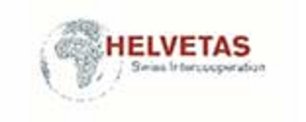
HELVETAS, Zurich
The goal of the project is to improve the life situation of socially disadvantaged young men and women in the region of Amhara in Ethiopia by enabling them a demand-oriented education and by supporting them with their entry into the working life. Thereby they can escape the poverty trap of “no education – no employment – no income” and sustainably improve their life conditions. At the same time, this project will be used as a model for other regions in Ethiopia.
Stiftung SOS-Kinderdorf Schweiz, Bern
The project supports the SOS-Hermann Gmeiner School in Gode, Ethiopia. The school offers children and teenagers from the city Gode, specially girls, a school education on primary and secondary level. The school follows the governmental school-curriculum but offers in addition to that courses like English, Computer, and natural science.
Caravan to Class, California (USA)
This school construction project takes place in the village of Koiria in Timbuktu, Mali. The Timbuktu region homes over 960 villages and roughly one third is without schools. The school that is built with our support in Koiria is French-based and the main focus is on children between six and twelve years of age who will receive a primary school education.
Salesian Life Choices, Cape Town (South Africa)
This project is a four-year intervention (Grade 11, 12 and post-matric) that aims to assist young people to enter college and university by supporting learners to improve academic performance through academic tutoring, study methodology techniques and education in emotional intelligence (self-awareness, self-management, motivation, empathy and social management). The final objective is to to mould a generation of young leaders from developing communities to become influential decision makers for a greater South Africa.
University of Basel (Centre for African Studies), Basel
The project develops and implements innovative forms of international collaboration in teaching among universities from the global South and North. This takes place in the form of summer or winter schools focusing on socio-economic changes in rural and semi-urban areas in Namibia and Switzerland with participants from both countries. The project offers a unique experience of intercultural learning and has the overall goal to serve as a model South-North Cooperation in learning and teaching at universities.
CO-OPERAID, Zurich
The project aims to provide qualified primary education for the children of an ethnic minority in the Nong region, Savannakhet province in Laos. This will be achieved by the establishment of child-friendly primary schools and kindergartens, the strengthening of the village community and infrastructure and the further development of the local public social aid.
Pragaya, Gurgaon (India)
The aim of this project is to improve the girls’ participation in education and to reduce discrimination and violence against girls in family and community. The project will improve girls’ participation and accomplishment in education as well as their life chances and the quality of their lives in general. By increasing the girls’ independence and confidence and by addressing socio-cultural gender inequities, the project will create a favorable environment for girls’ education and reduce discriminatory practices such as child marriage or child labor.
EcoSolidar, Basel
This project is active in Kampong Cham, Cambodia. It supports over 900 children and youths who come from very poor families, who are orphans or who are socially vulnerable. The support is provided at school, in art and music as well as in vocational education. Awarding scholarships to poor families enables the children to go to school, special courses teach the young people English and dance and vocational training educates them in the fields of mechanics, gastronomy, hotel industry, agriculture, beauty care or hairdressing. By completing a vocational education, the participants can ensure their future livelihood.
Stiftung Kinderdorf Pestalozzi, Trogen
This project has the aim to provide equal opportunities for children from ethnic minorities in Laos. The country has a vast ethnic diversity with 49 ethnics and over 80 different languages. The national standard curriculum is not adapted to the local needs which leads to a disadvantageous position for children from ethnic minorities. They do not have the same opportunities to access universities or higher education, to find a job or to life up to their potential. This project considers the ethnic and linguistic diversity in order to enable equality of opportunity.
MusicArt Society, Kathmandu (Nepal)
The project aims to enrich children’s lives through music education, especially for children from underprivileged families and children with special needs. Music education fosters various skills such as rehearsing for performance, breaking down performance skills into its component parts (rhythm, melody, harmony, form and discipline), team work or creating and following standards – for the learners as well as for the teachers. As the majority of the schools in Kathmandu does not offer music classes or only as an extra-curricular activity, there is a need for quality training in music and it has been proven that a well-developed music education system can be highly beneficial for an entire nation.
International Bureau of Education of the UNESCO, Geneva
Green Leaves Education Foundation’s donation is used for the implementation of the General Education Quality Analysis / Diagnostic Framework (GEQAF) in the Lao People's Democratic Republic. The GEQAF is a tool developed by UNESCO to help member states to take a systems approach to comprehensive analysis and diagnosis of their general education enterprise.
